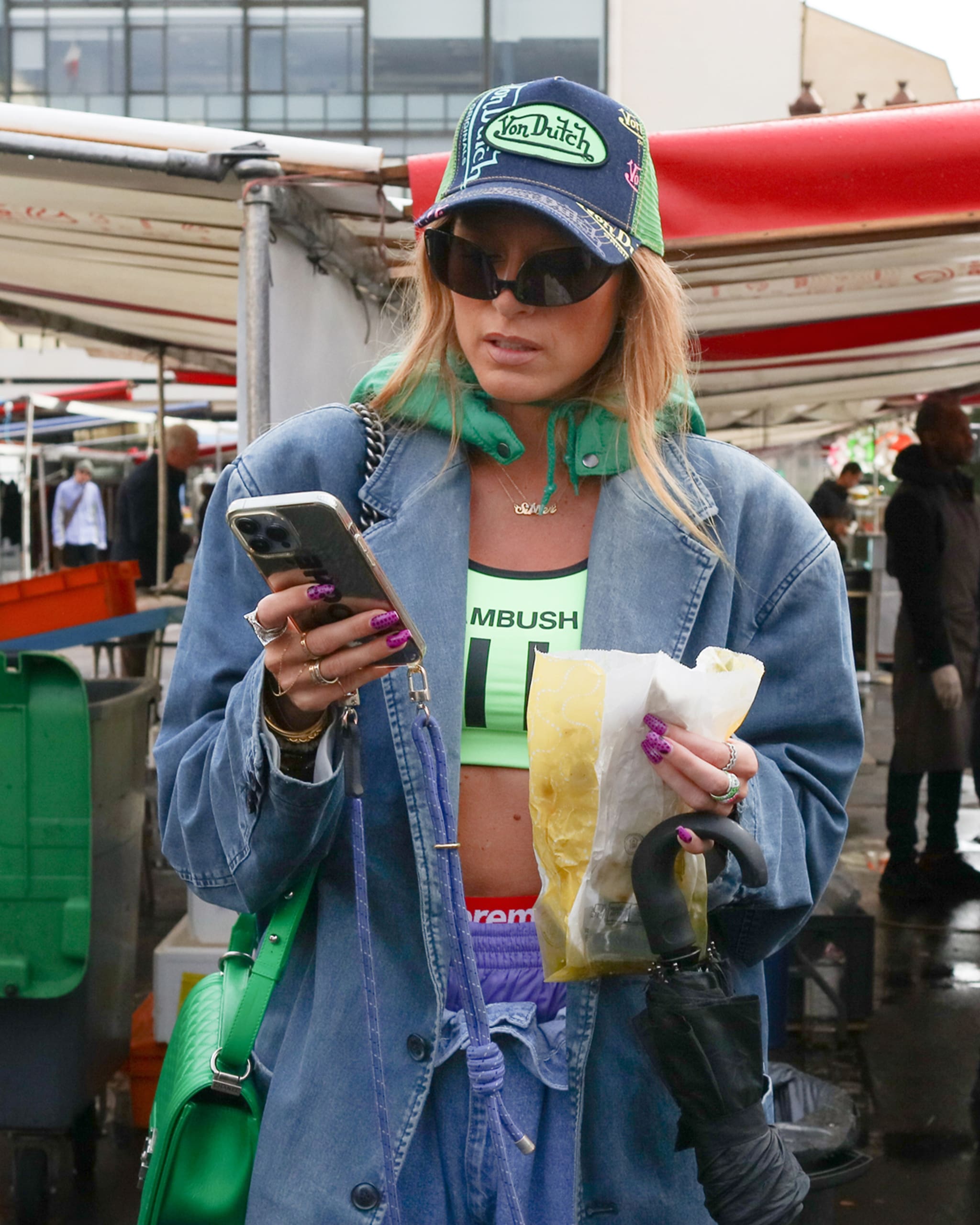Phil Oh
The social media app is making big changes.
The other day, I spent so long on TikTok that I’m embarrassed to write it down. In that time, I came across unhinged conspiracies about the death of Nicola Bulley, drama breakdowns about Selena Gomez and Hailey Bieber and, for some reason, about one thousand clips of sick, flea-ridden dogs being saved from the side of the road. Afterwards, I felt deflated and a little anxious. The sky outside was darkening. The world had spun without my noticing and a whole day had passed without my inhaling any fresh air. How is this possible, I thought, my eyes dry and hard in their sockets.
Earlier this month, TikTok announced that it would be implementing a daily screen limit for under-18s, and I thought: well, surely that’s a good thing? “In the coming weeks, every account belonging to a user below age 18 will automatically be set to a 60-minute daily screen time limit,” they wrote. Users will then be “prompted to enter a passcode in order to continue watching.” Obviously, most teens will just tap in the passcode and get back to their #corecore and slime videos, but at least it interrupts the scrolling for a moment. Anything to stop the scrolling. “Research shows that being more aware of how we spend our time can help us be more intentional about the decisions we make,” TikTok wrote. In other words, mindful scrolling is better than mindless scrolling, maybe because you’re more likely to take a break.
It can feel a bit simplistic to be like “phones… bad!!!” TikTok is mostly fun to use. And unlike some other platforms— Instagram or Facebook, for example—TikTok’s energy often leans more towards “having a laugh” than “look how great my life is in comparison to your shit one!” That said, we still know very little about the platform’s long-term impact on mental health. What we do know isn’t ideal. One study published by a non-profit found that it can take less than three minutes after creating a TikTok account to see content related to suicide, and five more to see eating disorder content. Meanwhile, 16 per cent of US teens say they use the app “almost constantly.” Which is, er, quite a lot of time to spend doing one thing if your brain’s not yet developed?
On a more anecdotal level, it’s clear that TikTok has the ability to eat into our time in ways that feel less than ideal. I used to love listening to podcasts in the bath with my eyes closed, or reading while sprawled on the grass in a graveyard on a hot day, or chopping dill and mixing it into yoghurt and squeezing in exactly the right amount of lemon juice. And I still love doing all of those things. But now they’re often interrupted by me picking up my phone “for a second” and swiping through TikTok and getting those neat little dopamine hits and then forgetting what I was doing and having to mentally realign. And without sounding like a “wake up, sheeple” boomer who shares political illustrations on Facebook, something about that feels minorly depressing. Or majorly depressing. Almost like we’ve been given a button to dissociate, or something.
While the new time limit is currently for under-18s only—because it’s more important to keep minors safe when their brains are pliable and impressionable—TikTok also announced that “everyone will soon be able to set their own customized screen time limits for each day of the week and set a schedule to mute notifications”. And while I’m not naive enough to think that screen time limits are revolutionary—any online trackers I’ve used in the past have barely elicited more than a passing “huh” —it’s worth acknowledging that being extremely online isn’t always positive and any steps to mitigate that ought to be welcomed. Anything other than dead-eyed acceptance of how things are should be celebrated.
Often, of course, stepping away from being constantly online requires more drastic steps than a little nudge from an app. I have a friend who gave her smartphone away in 2019 after realizing that Instagram was making her feel bad and overly accessible. She’s used a basic Nokia phone since, and it has made no material difference to her life other than she’s not mechanically swiping in the same way I am and can’t use Uber on nights out. Another friend of mine only checks social media apps on her laptop, because what’s the point in having them on her phone? She’s able to keep up with people without the invasiveness of constant notifications flashing in the corner of her eye. She’s not being interrupted during her daily life. Must be peaceful.
TikTok may be an inescapable force at present, but I am also tentatively optimistic that culture tends to take a turn when truly necessary. We’ve already seen young people step away from “fake” apps like Instagram, and towards more “authentic” platforms like BeReal. We know that Gen Z are becoming increasingly disillusioned with like-based content, with recent data showing that users between 18 and 25 years old are the only age group to see a decrease in social media use since 2019, bar TikTok.
There’s hope that, if people are starting to feel overly reliant or even anxious on certain platforms, then they won’t use them so much in the long-term. Or maybe I’m being completely delusional. TikTok is actively addictive after all—it’s basically a drug.
Maybe catch you on my “For You” page sometime.
This article was originally published on British Vogue.
